I meet Suzanne Eade in the newly decorated boardroom at Horse Racing Ireland. The heritage green walls frame an expansive racing library that somehow seems to serve as a weighty reminder of the importance of the task at hand.
Suzanne took up her post as CEO last autumn, so it came as somewhat of a surprise to discover that she is still carrying out her former role of Chief Financial Officer. This dual role is only for a couple of more weeks however, then Roger Casey will take the reins as CFO after 14 years with Tattersalls.
Incoming is never a particularly easy position. Still, an unflinching Suzanne appears confident in her vision, and despite rumblings that she may not be ‘racing’ enough, she seems well on the bridle when it comes to her new role.
Helen Sharp (HS): Having taken over from Brian Kavanagh, does it feel like taking over Man United after Alex Ferguson?
Suzanne Eade (SE): (laughs) Well, I better tell you now that Brian is a Leeds supporter, so you need to be careful there. Brian has been excellent to me, and I worked under him for six years as CFO. He brought me into the organisation, and it’s my job now to bring on whatever legacies he’s put in place to make sure that everything I do builds on those.
My focus will be on growing the business. Equine health and human welfare are also important to me because this industry is people and horses. If you get both of those right through policies, training and development, you build on the incredible success. I’ve always been in industry: I worked in fast-moving consumer goods and then pharmacy retail. I benefit from loving sport and knowing there’s a vast industry driven by people very dependent on the policies that happen here.
HS: You have been on national media defending the racing industry; you have already had your salary discussed in the Dáil. Do you find the public part of this job stressful?
SE: I suppose you are always accountable to somebody whether you are in the private or public sector. My work in the past hasn’t been as public in terms of the Irish environment if you like, but it is public enough when you face the owner of a huge retail business and you’ve got to defend Ireland. As long as I’m in an environment where I can be straightforward and transparent, I’m relaxed. (laughing) Just don’t Google yourself.
HS: It must be unnerving to know you face a government with less money than it’s had in a long time?
SE: It’s essential that you put the industry’s position very strongly to government. You’ve got to focus on the rural economy: those jobs are critical. We couldn’t drive the industry without that support from the government. We share the successes with them and measure everything we spend, so when we go back to government we can say: ‘Here’s where it’s made a difference’. All I can do is fight for the industry I lead. This is an industry that generates an excellent return. We are delivering €1.84bn in a normalised year. That’s probably going to go up as we head into 2023.
HS: How would you respond if people said you don’t know enough about Irish racing to hold such an important job?
SE: I don’t breed horses; I don’t race them, so my job is to lead the organisation. Effectively we are about developing and promoting the industry; that’s something I do have experience with in different sectors. I have a fantastic team around me and we work to deliver what’s important for racing and breeding.
HS: HRI launched their strategic plan before Covid. Are you planning to relaunch the plan?
SE: We had strategic pillars and we have revisited those. We are still looking at participation, broadening the appeal and driving excellence for people. Equine welfare is still paramount, as is traceability. There is also a considerable emphasis on education and training to help encourage a pathway that will help the industry. We’ve made some tweaks around sustainable growth. It is imperative that whatever I put into place today, I can do again next year.
HS: One strategy pillar is the desire to open the all-weather track in Tipperary; when will the ribbon be cut on the project?
SE: Well, you know that is a really important project to us and it’s going to be great for racing and breeding. We are entirely dependent on the planning process. The thoughts are that with no delays, we are probably talking about the end of 2024.
HS: What is HRI planning to do to get racing back in the good books with the general public following events in 2021 which affected how racing is perceived?
SE: We measure a lot, so we’ve done a lot of independent research and all the feedback would suggest that racing is loved by people in Ireland and those from abroad who experience Irish racing. Some of the conflicts around concerns have actually reduced in the last year. Much of that is due to success on the track and, for example, the documentaries on Rachael Blackmore and other jockeys, but we don’t take anything for granted.
We are focusing on protecting the racing industry, promoting it, and what we are doing integrity-wise, working very closely with the IHRB. We do this all to protect our industry, but we have zero tolerance concerning the drug side of things. Without integrity and the pureness of the product, we would not do well. When I look at the IHRB’s recent audit, the number and levels of testing they are doing, and the fact that they are using an IFHA accredited laboratory, that fills me with confidence that things are good.
HS: How is the current relationship between IHRB and HRI?
SE: I think we worked particularly well through the whole Covid environment. The work between the two organisations was tremendous and both organisations pulled out all the stops to make sure that racing never suffered in terms of being able to carry on. I think that IHRB is going through a lot of change at the moment and we have to let them breathe and go through that change. I think there’s a willingness on both sides to not wait for the crisis but to ask, how do we work better?
HS: The 2021 industry statistics suggest that racing is booming with steep increases in the number of horses in training. Assuming there’s no plan to increase the fixture list, should we stop encouraging new owners to get involved? Are we full up?
SE: I’d say we are not full up. The thing about it is making sure that you attract all ownership levels, and there are certain types of ownership that bring more people into racing - so working with syndicates, working with clubs and all that. And don’t forget, we’ve got an all-weather track to come, so we should be able to increase the fixture list.
What I really like about the statistics for last year is the level of retention. That’s important because there have been two years of Covid, and people who couldn’t for a long time even see the horses on a track stayed with us. So we are very grateful to the owners and their commitment to Irish racing.
HS: Trainers have told The Irish Field that they believe HRI wants to discourage owners from buying second-hand racehorses in Britain and instead encourage them to invest in yearlings. Is there truth in that?
SE: That is our job to promote the Irish thoroughbred. We are not opposed to purchasing horses from overseas at all, but we are always about improving the quality. Our prize money strategy and racing programme is what that’s all about.
HS: Last year, you allocated €1.3m to the IRE Incentive to promote Irish breeding and sales activity. Do you think there’s a strong link between HRI and the breeding industry?
SE: I absolutely do and we work very well with the breeders. We work with them on the Foal Levy to fund some of the essential areas for breeders. There’s also a great relationship between the racing department and the European Breeders Fund [EBF] who invest in the race programme. So yeah, we can always do more.
Because of the structure we have from John Osborne as Head of Bloodstock and his relationship with Charles O’Neill of Irish Thoroughbred Marketing and with the Irish Thoroughbred Breeders’ Association and all they are achieving together, I believe our links with the breeding industry are very good.
HS: The majority of thoroughbred breeders have five mares or less. Do you feel they are supported in the same manner as the big operations?
SE: We actually met with breeders from the Irish Farmers’ Association a couple of weeks ago and they were putting proposals to us. We probably need to think about different areas, but we don’t specifically support one breeder over another. The IRE Incentive is a scheme for everyone, and you know there have been over ninety different owners.
HS: Yeah, the new IFA Horse Project Team is lobbying for increased CAP funding. Are you supporting them?
SE: We would actively encourage them to look for that. There’s a widespread of winners, so hopefully, that will filter into it. That’s money that goes back into breeding. There have been some great results in terms of horses that weren’t purchased for a lot. But then you do wish the breeder got more.
HS: HRI’s marketing department seems to be getting bigger. is there a big push on to get people back to the track?
SE: Absolutely, we are pushing to get people back. There is that pent up kind of demand and we know that the interest in racing has gone up year-on-year because we’ve measured that. For me, marketing is much more than getting people back racing. It’s also getting people to consume the product, whether watching it on TV or online. It’s also our job to make the sport and industry attractive to future sponsors.
HS: Are you going to contribute towards the insurance costs again for pony racing?
SE: Yes, we have committed to do that.
HS: Why didn’t HRI get more involved in the point-to-point insurance crisis?
SE: I think I’d say we got involved appropriately on that one. I was very much in contact with Paul Murtagh because the point-to-point remit is that of the IHRB rather than the HRI. They were working on a solution together with the hunts and we would have been in weekly contact.
Anything we can do, which we couldn’t really do anything because it’s a private insurance matter. If they had asked for more help, we would have been there.
HS: Point-to-pointing was cancelled during Covid. Regarding the influx of horses to the track, would you agree that HRI has an interest in seeing it functioning properly?
SE: I think that would be inappropriate to talk about because I don’t know the ins and outs. But we want a thriving point-to-point sector. The people are tremendous and the passion is great. The amount of racing going on in a day is incredible. I must get out to see more.
HS: There must be a real focus for you this year on pushing the racing TV rights deal as it comes up for renewal at the end of 2023?
SE: Yeah. It’s important that we get the right media rights deal for racing. I don’t mind saying that Irish racing is a very popular product and I think we would continue to drive that for the industry. So the answer is it’s important as an income stream for the racecourses and the industry in general.
HS: It seems a no-brainer that the price will go up; that’s your battle to win isn’t it?
SE: Yeah, that’s it; media rights is a whole committee, not just me though; it’s a tough cookie!
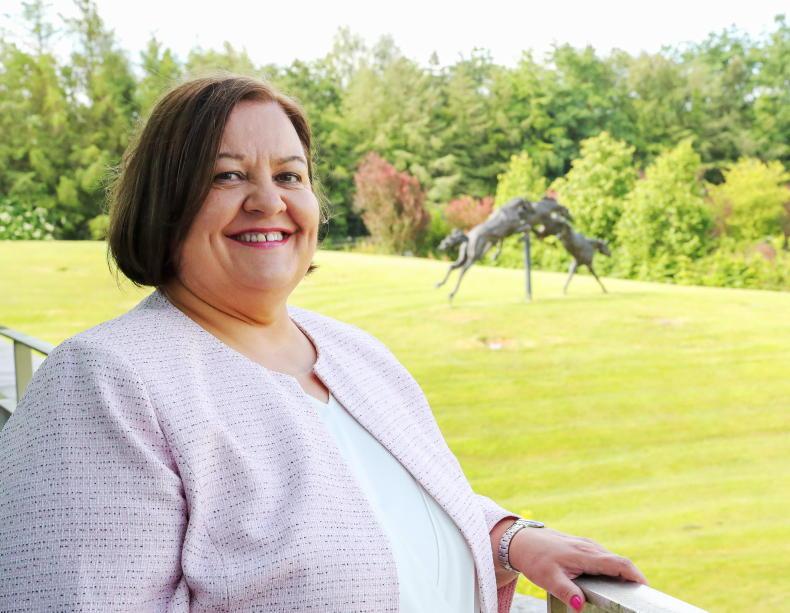

 This is a subscriber-only article
This is a subscriber-only article
 It looks like you're browsing in private mode
It looks like you're browsing in private mode




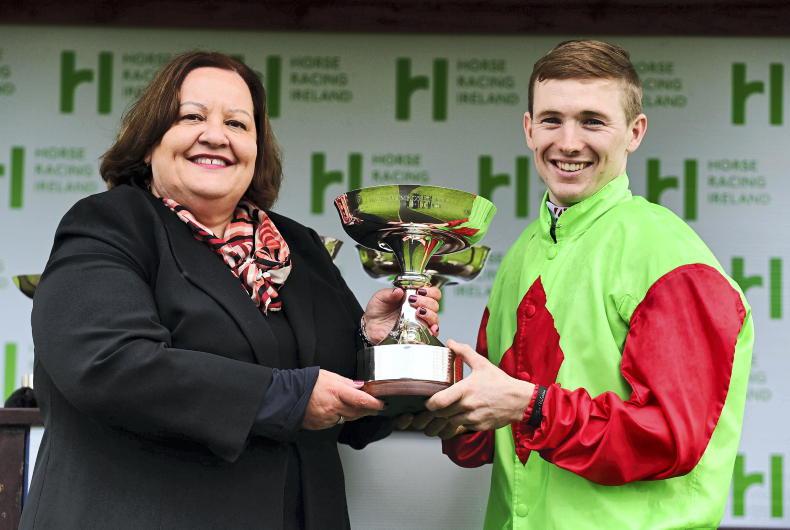
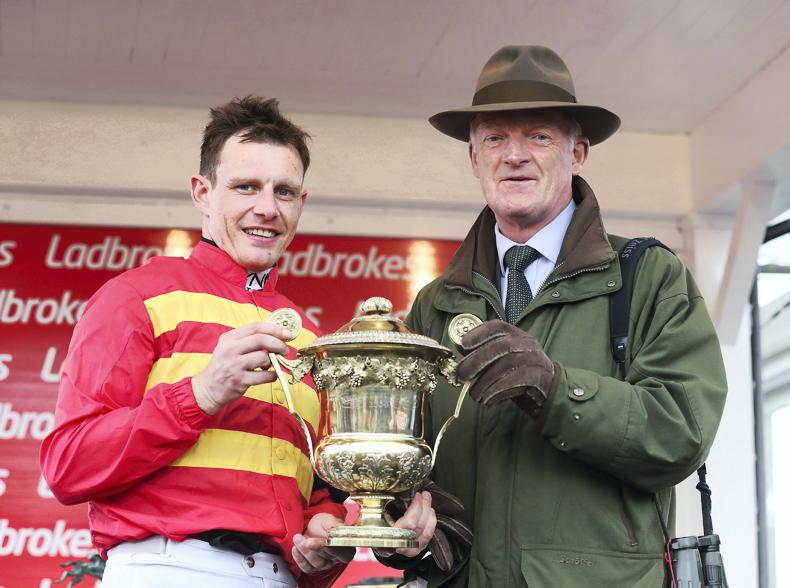

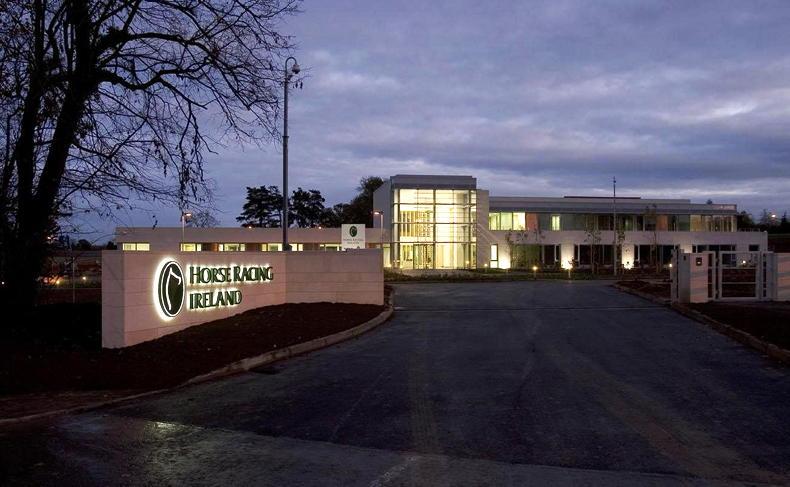

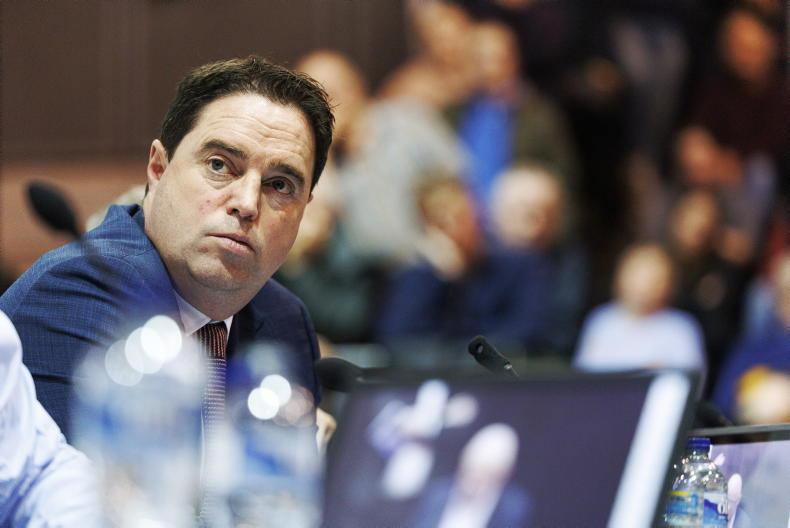
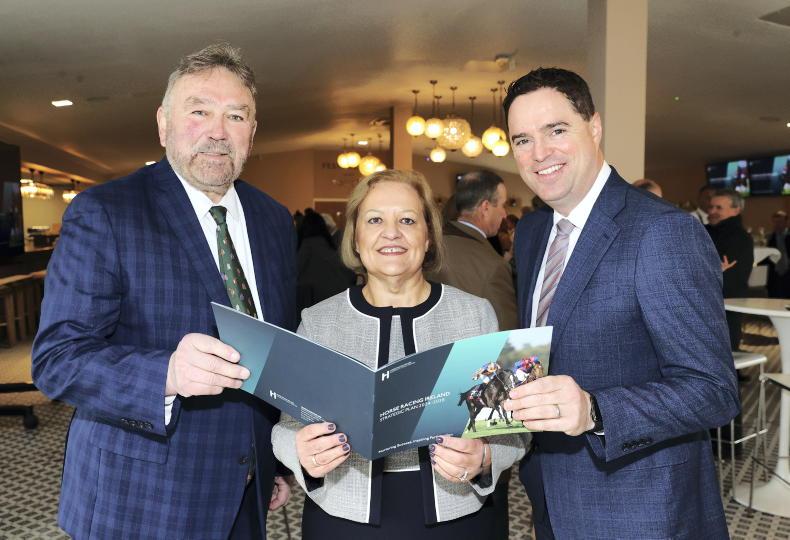
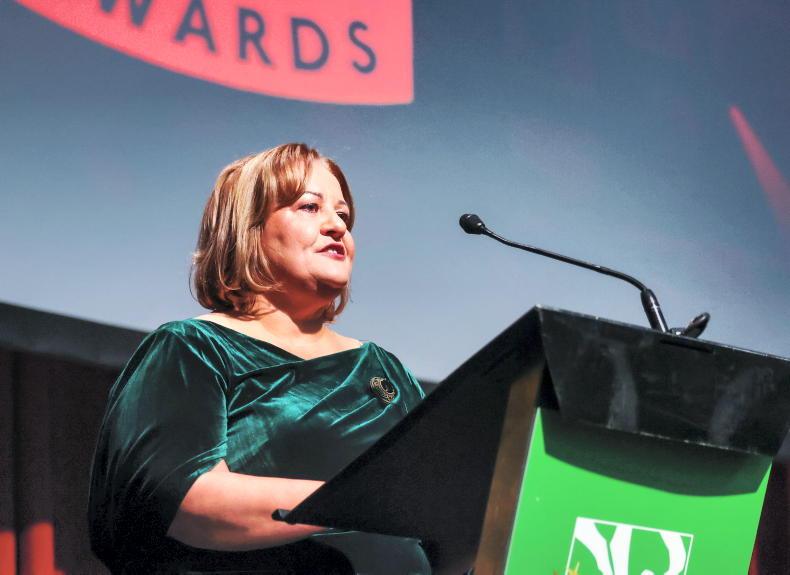
SHARING OPTIONS: